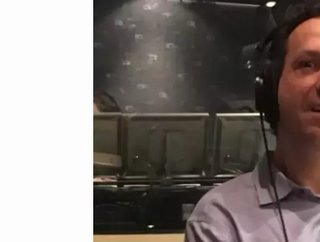5 minutes with Rich Donovan, Return on Disability Group CEO

Rich Donovan is the CEO of The Return on Disability Group and is an expert on disability and corporate profitability.
He has spent more than 15 years focused on defining and unlocking the economic value of the disability market.
Rich lives in Toronto with his wife and son.
Hi Rich! Can you tell us how working through the pandemic has influenced you? How have you supported your team?
“We try to understand what the world looks like for our clients. It’s actually quadrupled our business because the pandemic has shown us what disabled people deal with on a daily basis. They have become more aware. Managers cannot ignore us anymore. It has made our job easier. Not much has changed for the team because we all worked from home before. The biggest thing has been no travel! I think [to say]: “We have always done it that way, we don’t want to try anything new. Covid-19 is driving change”.
Return on Disability says: "Disability [is] the #1 global emerging market" - can you explain this?
“There are 1.3 billion people around the world who identify as having a disability. It is the world’s largest emerging market. A frontier market. There is enormous value here!”
Tell us about your journey to Return on Disability.
“The first part of my career was as a trader. That experience taught me how value was actually created. You are looking for high performing companies, and we weren’t looking at people with disabilities. I stuck my hand up and said: “This is something we should do”. In support of that, I started doing research on disability economics. The research astonished me! I didn’t realise there was this much spending power. Thirteen years later, here we are! The group was where the hard work comes in. You can’t just say, “Let’s do it”; you have to build. That’s the hard part”.
What is ESG to you?
“My honest answer is that it is a PR construct. Demand has shifted over the last 25 years. Our customers are demanding a different approach to environmental issues. They are trying to watch out how to accommodate that demand shift. ‘Social’ is the least developed and the least political.”
Goal 8 of the UN Sustainability Goals proposes: "By 2030, achieve full and productive employment and decent work for all women and men, including for young people and persons with disabilities, and equal pay for work of equal value". Do you think this is possible by 2030?
“Yes, it’s possible. I don’t think it’s possible by doing what we are doing today. It’s very hard to change an organisation from the ground up, but you can apply to their interests”.
How are you anticipating attitudes towards people with disabilities will evolve in a post-pandemic world?
“That [employing people with disabilities] can’t be a PR exercise anymore. But you are not going to convince every company. I think that’s the biggest realisation for me: You don’t have to convince everyone. You just have to convince the best.”
What would you say to people who are frightened of hiring a person with a disability?
“You are a dinosaur. That may have been OK 20 years ago, but it’s a very, very weak excuse now. Anyone frightened of hiring a person with a disability needs to do their homework. They are behind the times and probably doing a great disservice to their shareholders, which they will find out”.
What's next for you?
“Getting people with disabilities out there.”






